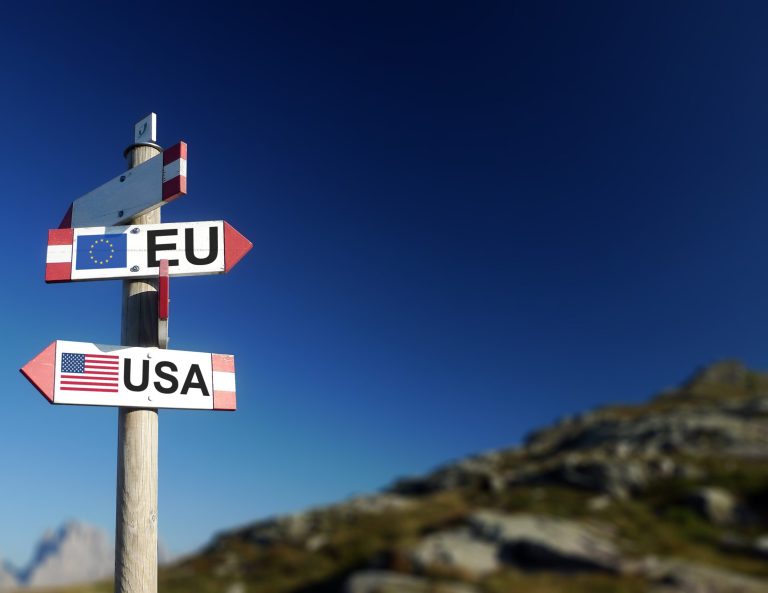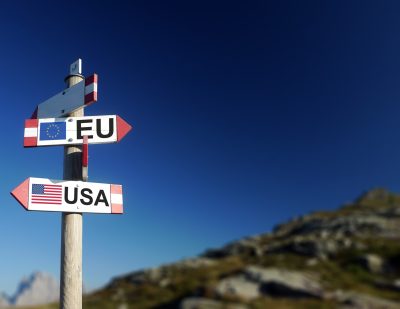Illustration: Shutterstock 2025-01-09
Illustration: Shutterstock 2025-01-09
As the President-elect Donald Trump’s inauguration draws closer, many Americans, and indeed people around the world, in and out of governments, are trying to decipher what the next four years will mean for them. While much is unknown, we do have important clues in the form of Trump’s nominations and appointments as to what Trump’s next term will mean — including for Central and Eastern Europe.
We can divide the relevant nominees and appointments so far into three groups: diplomacy, defense, and trade.
First, on diplomacy: For his nominee for Secretary of State, Trump has put forth his 2016 primary rival, Marco Rubio. Rubio has historically been a staunch critic of Russian President Vladimir Putin. However, he also said, after Trump’s election, “In the case of Ukraine, who wants war? What he’s talking about is that he wants the war to end…Obviously, you don’t have to be a fan of Vladimir Putin to want the war to end…I think the Ukrainians have been incredibly brave and strong in standing up to Russia. But at the end of the day, what we are funding here is a stalemate war, and it needs to be brought to a conclusion, or that country is going to be set back 100 years. That doesn’t mean that we celebrate what Vladimir Putin did or are excited about it, but I think there has to also be some common sense here.”
Some of this might suggest that Trump’s administration is likely to pivot away from Europe toward China (Rubio, the son of Cuban exiles, is also expected to focus some on that country, including by potentially tightening the screws on Cuba’s economy by way of increased trade embargo). Previous administrations, however, have also wanted to “pivot to Asia,” only to find themselves pulled back to Europe and the Middle East by current events.
Perhaps more concerning, however, is Trump’s pick to be director of national intelligence: Tulsi Gabbard, who has pushed false claims about Russia’s war in Ukraine, repeating the Kremlin talking point that the United States was funding weapons labs in the country. If confirmed by the Senate, her oversight and extensive access to U.S. intelligence could potentially prompt some Central European allies to reconsider intelligence sharing on certain topics, particularly those related to Russia.
Also of note here is Elon Musk, who does not have a formal nomination concerning diplomacy (he will apparently be co-heading a government efficiency initiative), but who has nevertheless been meeting foreign leaders along with Trump, including Hungarian Prime Minister Viktor Orbán. Musk has also taken to posting in support of Germany’s far-right AfD party; the German government has accused him of trying to influence the upcoming federal election. (Vice President-elect JD Vance has also joined in, praising the far-right party.) Musk has previously reportedly been in secret conversation with Putin.
On defense: Trump has decided that he would like Pete Hegseth, a veteran and Fox News host who has been accused of having a problem with drinking and of sexual assault, to be his Secretary of Defense. Hegseth, like Trump, is a NATO critic. In his 2024 book, he wrote that NATO allies are “self-righteous and impotent nations asking us to honor outdated and one-sided defense arrangements they no longer live up to.”
Trump has also announced that he will be nominating Elbridge Colby to be his undersecretary of defense policy. Colby also worked in the Pentagon in the first Trump administration. Colby has said that the United States’ priority must be China, and has said that “this approach counsels getting our allies to do more to help address shared interests.” He has also said that while he supports Ukrainian defense “morally,” “the United States needs to face the fact that we can’t do everything in the world. And that we are way behind on the primary issue facing the country from a geopolitical perspective which is China dominating Asia and we are not gaining in Asia by spending in Ukraine as many claim. And we would have been better served to put a lot more of that money to use in the Pacific…particularly the Europeans should step up.”
And finally, there’s the pesky matter of trade and the global economy. Trump’s pick to helm the Treasury Department, Scott Bessent, has defended tariffs as a “useful negotiating tool” (he is also a former employee of someone known well to the region: Hungarian-born billionaire philanthropist and financier George Soros).
Trump named Howard Lutnick, who was reportedly also jockeying for the top job at Treasury, as his pick to lead the Department of Commerce, in which capacity he would oversee trade restrictions. He is also a supporter of Trump’s tariff plans, which, despite the skepticism of economists and warnings that they will ruin the US and world economy, Lutnick has described as “an amazing tool.”
Peter Navarro, who advised Trump on trade in his first term and who spent months in prison for failing to comply with a congressional investigation related to the attack on the US Capitol on Jan. 6, 2021, will be senior counselor for trade and manufacturing, which some have taken as yet another sign that Trump does indeed intend to move ahead with tariffs.
Tariffs targeting European car manufacturers could heavily impact both Slovakia and Hungary, key hubs for car factories. Additionally, tariffs on Chinese companies may undermine Viktor Orbán’s plans to position Hungary as a bridgehead for Chinese firms, particularly in the electric vehicle and battery production sectors. Similarly, potential sanctions on major Chinese corporations involved in the tech sector with ties to the Chinese military could also jeopardize Hungarian-Chinese business ventures.
Trump, it’s true, doesn’t always make good on his promises and threats (though sometimes he does, as he did in withdrawing from the Iran nuclear agreement and the Paris climate agreement). The threats and promises do, however, have often meant that foreign governments have to engage with the Trump administration as though they could become real. We do not know, for example, whether Trump will actually try to economically pressure Denmark into selling Greenland, only that he is talking about it and that it is thus now presumably the Danish government’s problem. So it will be for Central and Eastern Europe.
There is one final figure whose role may not have an impact on the region, but whose name may nevertheless be known to some in it: Sebastian Gorka, of Hungarian ancestry, who is poised to be deputy assistant to the president and senior director for counterterrorism and was accused of having ties to the far-right. Indeed, he once launched his own far-right party in Hungary after growing discontent with Orbán and Fidesz, which he has described as corrupt.
Subscribe to “Goulash”, our newsletter with original scoops and the best investigative journalism from Central Europe, written by Szabolcs Panyi. Get it in your inbox every second Thursday!
Emily Tamkin is a global affairs journalist and author of The Influence of Soros and Bad Jews. Her work has appeared in the New Republic, the New York Times, Slate, and the Washington Post, among other publications, and previously covered foreign affairs and US policy on staff at Foreign Policy, BuzzFeed News, and the New Statesman. She was a recipient of a Heinrich Böell fellow in 2017 and a Shalom Hartman Writers and Journalists fellow in 2021-2022. She provides English language editing for VSquare and is based in Washington, DC.







